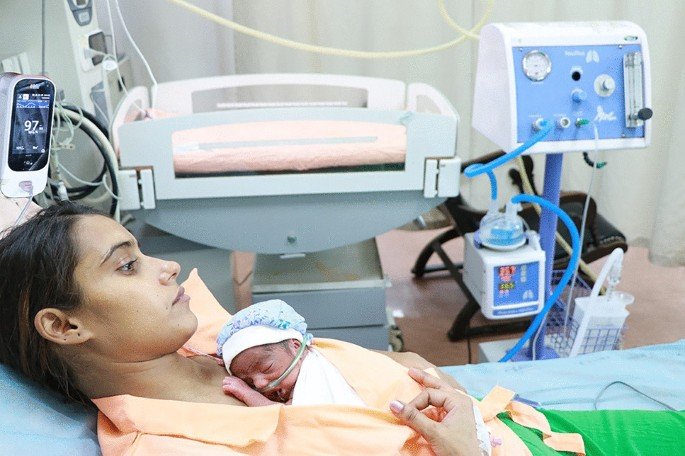- 1234567890

Neonatal care refers to the medical care provided to newborn infants, specifically those who are born prematurely, have low birth weight, or have medical conditions that require specialized attention. Neonatal care is critical in the first few weeks of life when infants are most vulnerable and require intensive monitoring and treatment.
Key aspects of neonatal care include:
1. Neonatal Intensive Care Units (NICU): Neonatal intensive care units are specialized hospital units equipped with advanced medical equipment and staffed by healthcare professionals trained in neonatology. NICUs provide intensive monitoring and treatment for premature infants or those born with complications.
2. Respiratory Support: Many premature infants have underdeveloped lungs and may require respiratory support such as mechanical ventilation, continuous positive airway pressure (CPAP), or supplemental oxygen to help them breathe until their lungs mature.
3. Temperature Regulation: Newborns, especially premature infants, have difficulty regulating their body temperature. NICUs provide warm environments and may use incubators or radiant warmers to maintain a stable body temperature.
4. Nutritional Support: Proper nutrition is crucial for newborns' growth and development. Neonatal care teams monitor feeding patterns closely and may provide intravenous fluids, specialized formula, or breast milk through feeding tubes to ensure infants receive adequate nutrition.
5. Monitoring and Testing: Neonates in intensive care undergo continuous monitoring of vital signs such as heart rate, respiratory rate, blood oxygen levels, and blood pressure. They may also undergo diagnostic tests such as blood tests, imaging studies (like ultrasound), and screenings for common newborn conditions.
6. Treatment of Medical Conditions: Neonatologists and neonatal nurses manage and treat various medical conditions that affect newborns, including infections, jaundice, respiratory distress syndrome (RDS), intraventricular hemorrhage (IVH), and congenital abnormalities.
7. Family-Centered Care: Neonatal care teams work closely with parents and caregivers to provide education, emotional support, and involvement in their baby's care. They encourage kangaroo care (skin-to-skin contact) and support breastfeeding or feeding plans tailored to the infant's needs.
8. Developmental Support: Early intervention programs may be initiated to support the developmental needs of premature infants and those with medical complexities. This may include physical therapy, occupational therapy, and developmental assessments.
Neonatal care aims to promote the health and well-being of newborns, minimize complications, and facilitate their transition from the womb to the outside world. It requires a multidisciplinary approach involving neonatologists, pediatricians, neonatal nurses, respiratory therapists, nutritionists, social workers, and other specialists to ensure comprehensive care for these vulnerable infants.